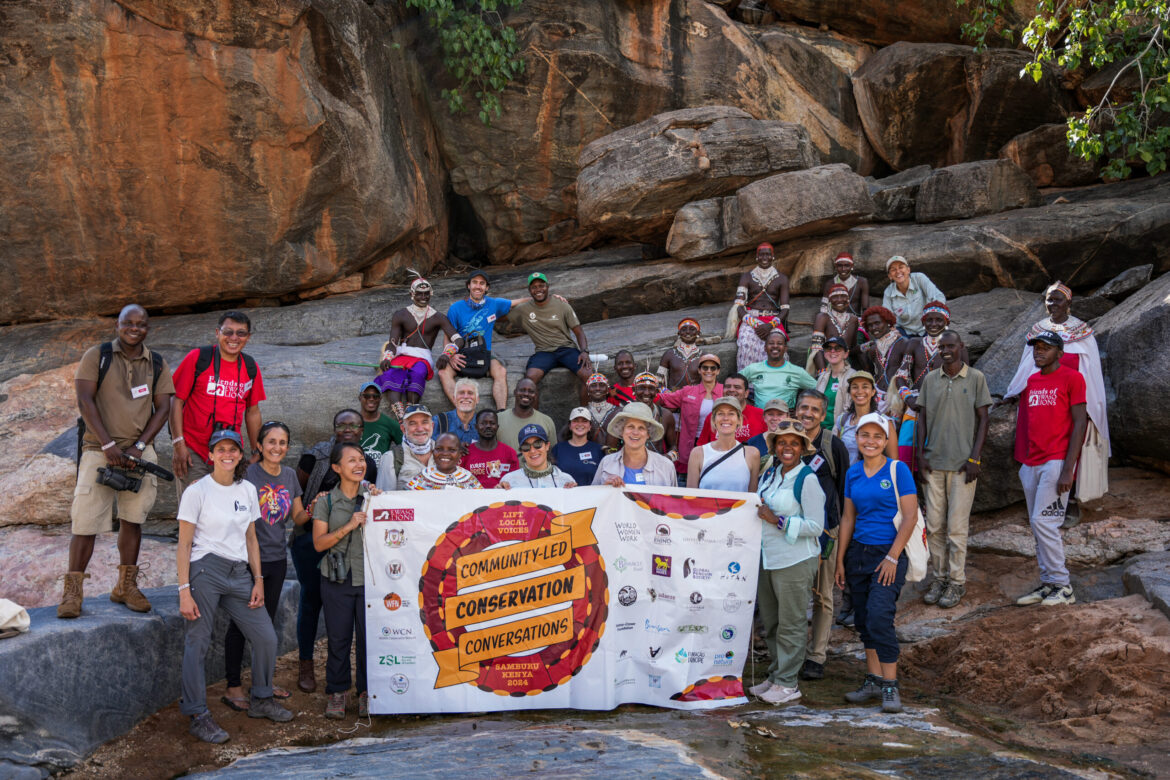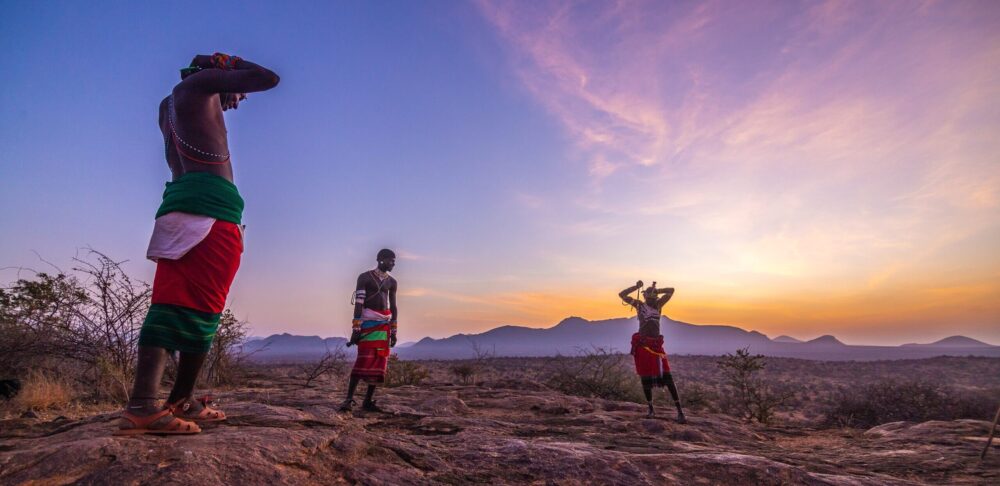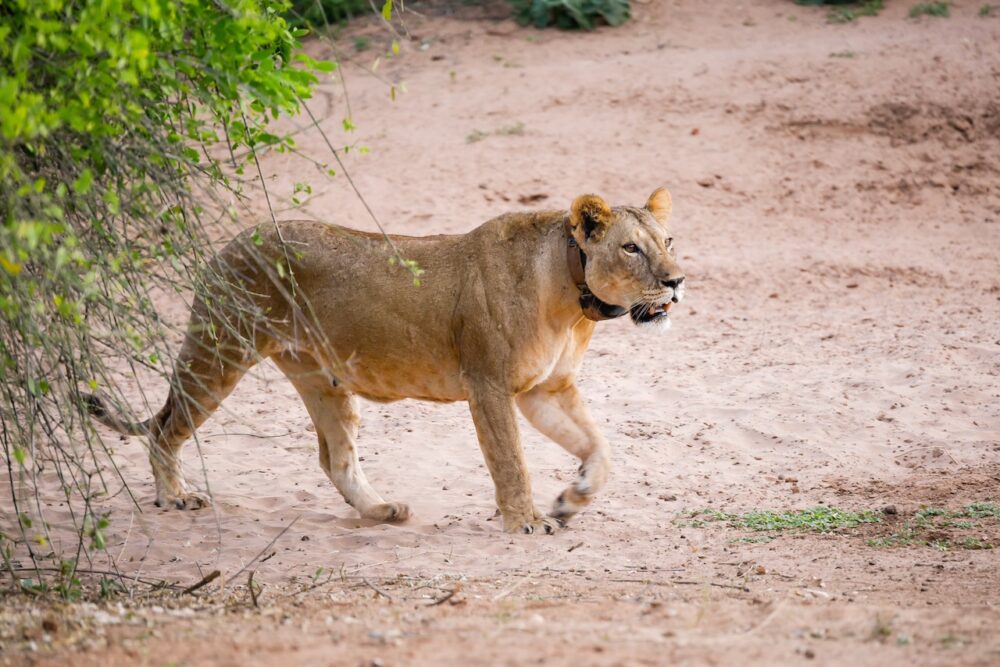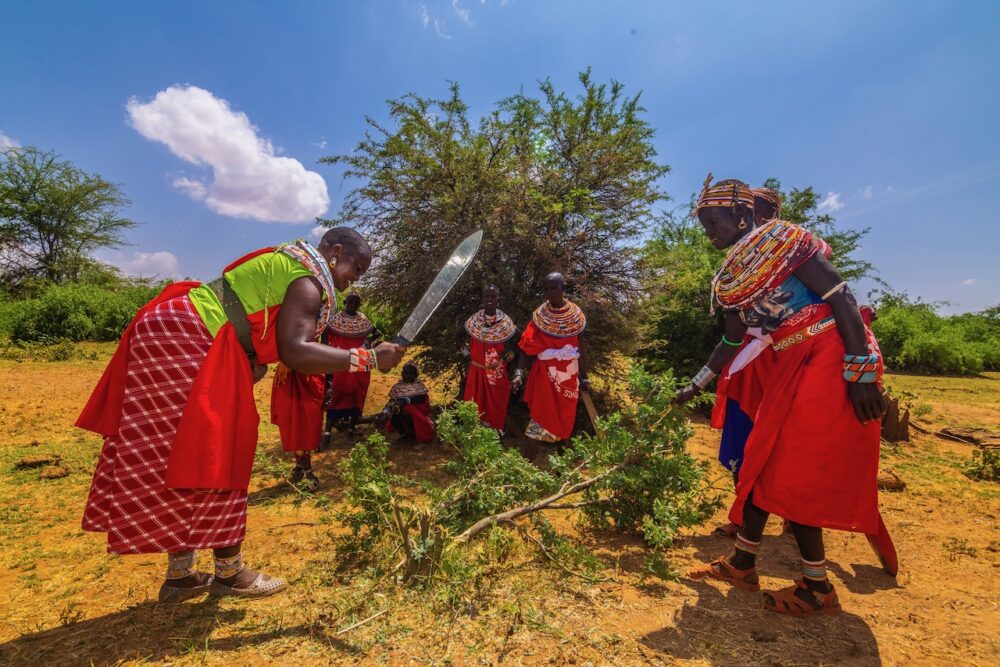In November, after months of preparation and countless emails, Ewaso Lions had the privilege of hosting a remarkable week-long workshop in Samburu. This gathering brought together 18 distinguished conservationists from around the world to share insights on community-led conservation and to strengthen the pivotal roles that local communities play in conservation.
A mountainous idea born before a poignant backdrop
The workshop was born out of an inspiring vision that first took shape in December 2022 during a conversation in a small restaurant surrounded by the Kyrgyz mountains of Ala Archa. It was there, at this gathering of leading conservationists, that an idea was sparked. The workshop was carefully curated to bring together a diverse group. This was part of the Whitley Gold Award that Ewaso Lions won in 2023.
Invitations were extended to conservation organisations from Whitley Fund for Nature (WFN) alumni and from Wildlife Conservation Network (WCN) partners, and from this pool, 11 different organisations, representing conservation perspectives from 8 different countries came together. Each organisation, sponsoring body and partner played a role in bringing together this grouping of collective knowledge and experience in conservation.
The interplay of ideas: how it was brought to life
The workshop addressed key topics in community-led conservation. One of our first sessions was spent in trying to tie down definitions for the words ‘local’ and ‘community’. In doing so, we learnt about one another’s blind spots as well as their considerations of what was most important when we consider ‘local’ and ‘community’.
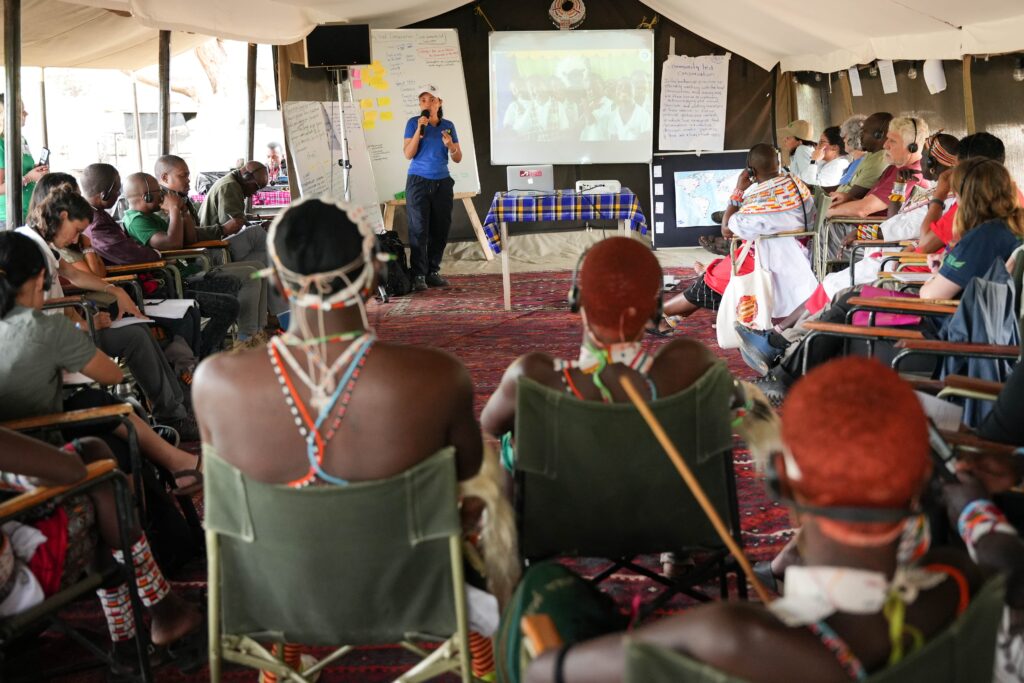
The workshops were conducted with real-time translations, played through headphones, so that everyone could follow the conversations.
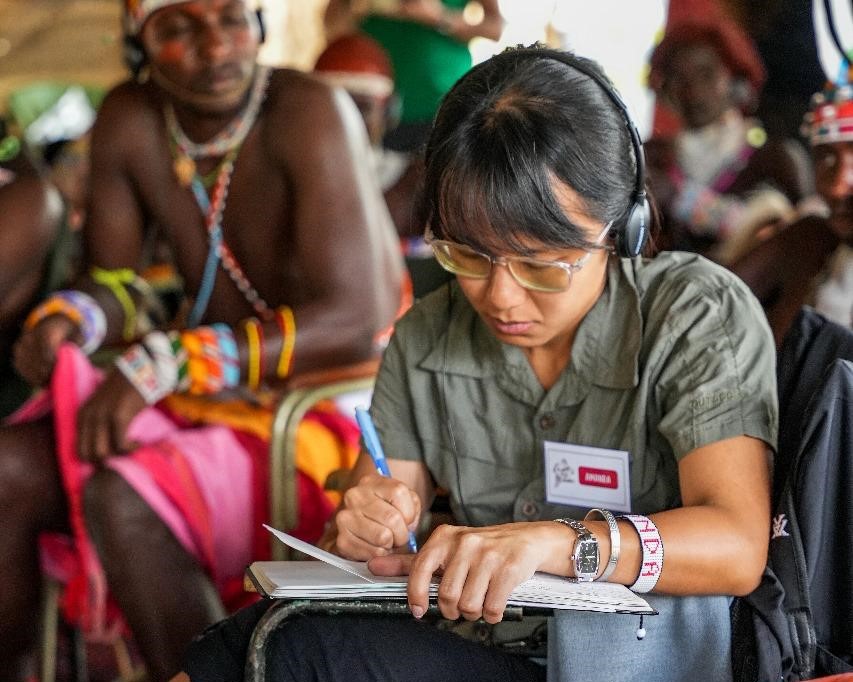
Many interesting insights were shared and each of us took something useful away from our discussions.
As we had these conversations, we were always sharing best practices and methodologies. Together, we discussed how these terms differ across cultural and geographical contexts, and, in having this discussion, we enriched each other’s perspectives on the importance of community leadership in conservation.
Rosamira Guillen, from Proyecto Titi – a project protecting the Cotton-Top Tamarin of Colombia -, gave us this compelling insight: “If people are not meeting their basic needs, they are not going to worry about conservation.”
This was a gathering of conservationists with invaluable insights in implementing community-led programmes in a wide array of settings and, as such, the conversations had and experiences shared contributed to a truly exciting discussion that launched new avenues for thought.
Ewaso Lions’ very own Munteli Lalparasaroi, said something which really resonated: “To be able to work with the community, you must take time and listen to the community and see what they want to do.”
In order to ensure that every voice was heard and every perspective or insight could be effectively shared, we had real-time translators working to assist us in doing so. We had community representation from so many different countries – from snow leopard conservationists working out of the Ladakh mountains in India to biodiversity advocates from the islands of São Tomé and Principe – and we wanted to ensure that language was not a barrier as everyone’s experiences were shared.
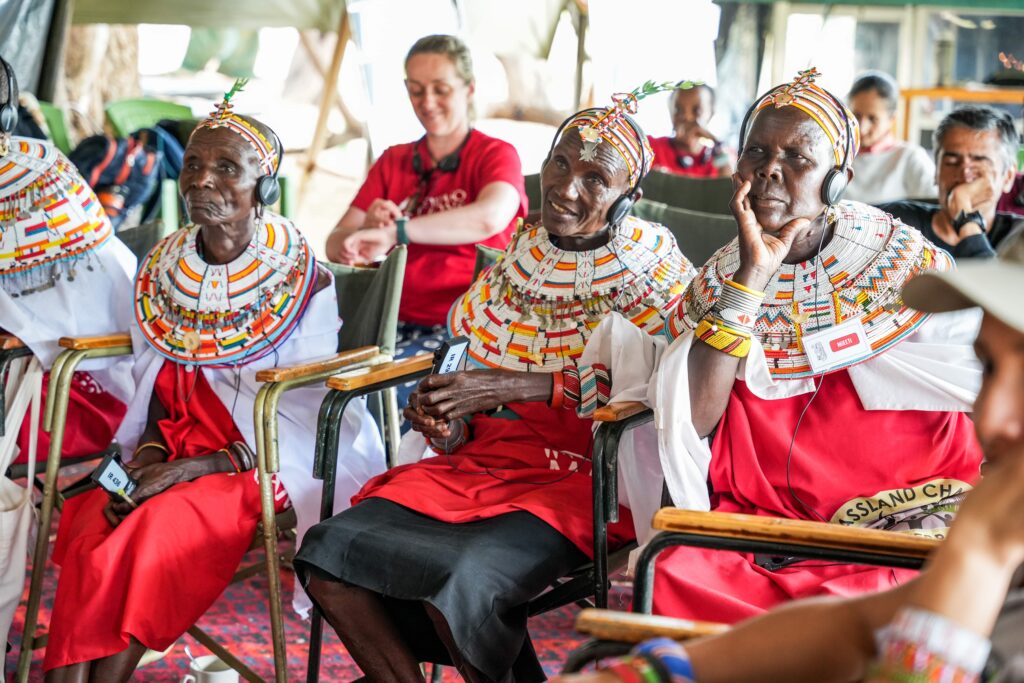
This sort of conversation across different languages and assisted by technology is something seldom attempted in an environment as remote as Samburu.
Sharing ideas in this manner was truly exciting. The translators we worked with were incredibly professional and watching this sort of real-time translation – in English, Samburu, Portuguese and Spanish – in a bush environment was something to behold.
Ground covered
One of the workshop highlights was a session we conducted in sharing conservation experiences. We did this through video interviews. We worked with a team of videographers and asked them to capture the stories that detail the on-the-ground realities, challenges, and successes of community-led conservation from those that live and breathe their organisations’ operations.
Another interesting angle to the workshop was in the conversation we conducted on succession planning. Conservationists discussed ways to ensure sustainability and continuity in conservation efforts, particularly in the context of leadership transitions. This topic underscored the importance of building resilient organisations that could adapt and thrive over time.
By the end of the workshop, and despite that we will always be learning on this front, we believe, together, these partners in conservation have built the beginnings of a framework for successful community-led conservation. This combination of diverse experiences and insights was truly something amazing to be a part of. Enriched by the voices of conservationists representing 11 different species and spaces, the conversations we had reflect a truly global perspective and it is our hope that they will form the foundation of positive and impactful change in this area.
Intersecting some of this metaphorical ground covered, we made sure to show our guests what we do in the field as well as some of reasons why Samburu – with it’s unique biodiversity – is so worthwhile protecting. When the weather and our agenda afforded it, we made sure to take a safari in Samburu National Reserve. These safaris, alongside the educational experiences led by our Warrior Watch and Mama Simba teams, allowed us to showcase Samburu’s wild spaces as we also described some of our field operations in them.
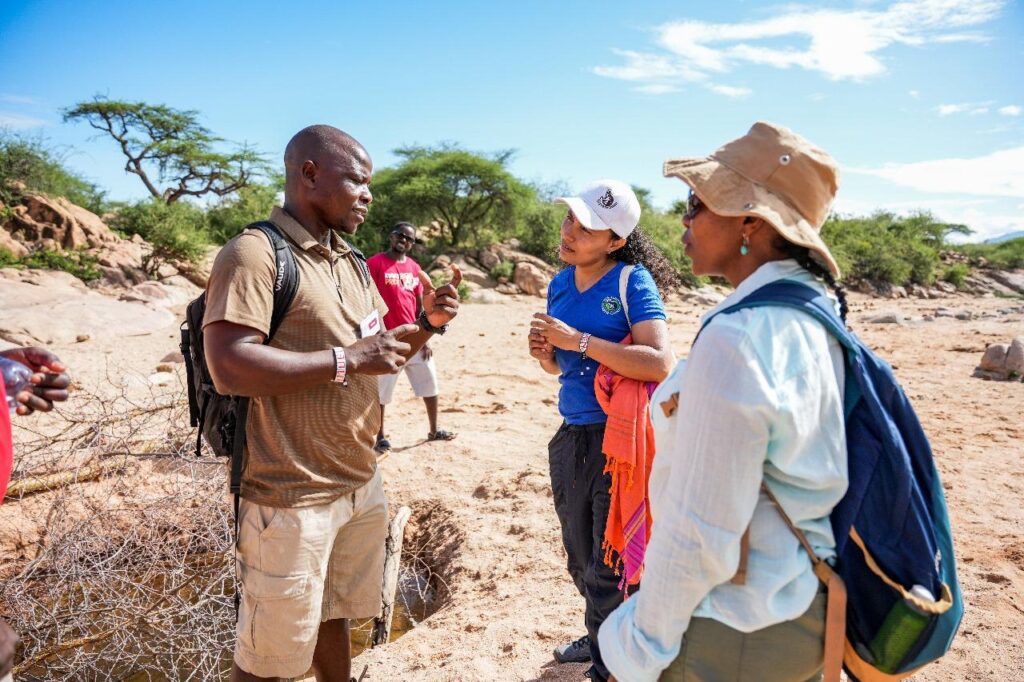
Group walks in the area were a great opportunity for our guests to learn about the habitat that Ewaso Lions works in.
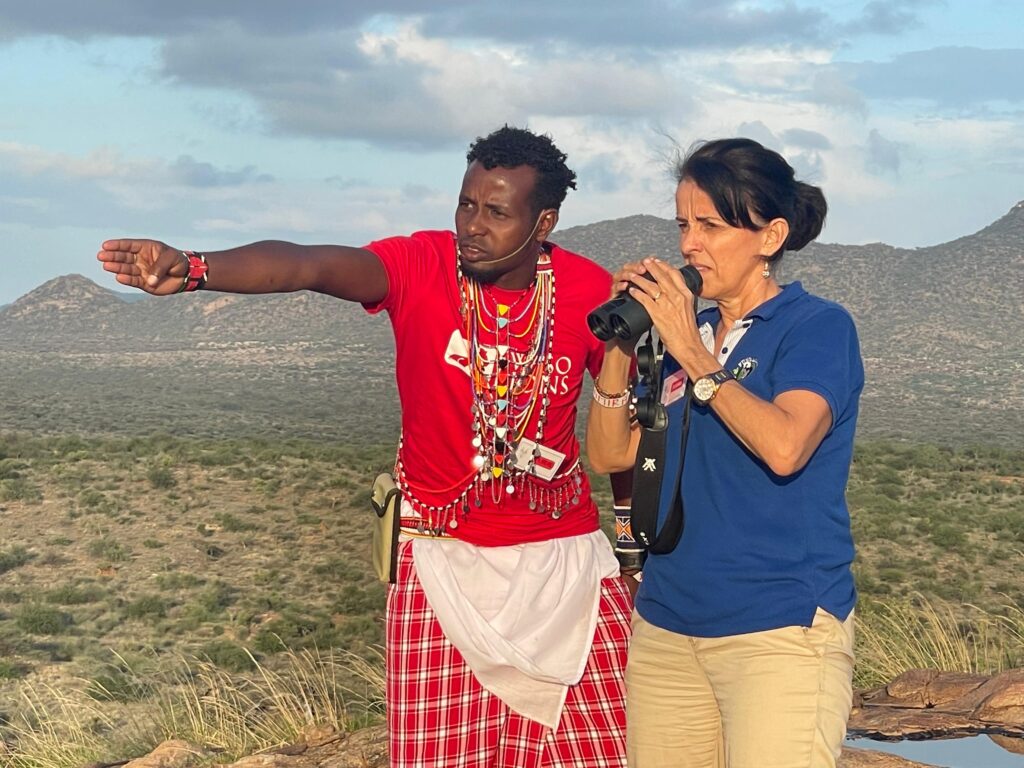
These outdoor excursions were also an opportunity to show our fellow conservationists how we work to conserve lions in the area.
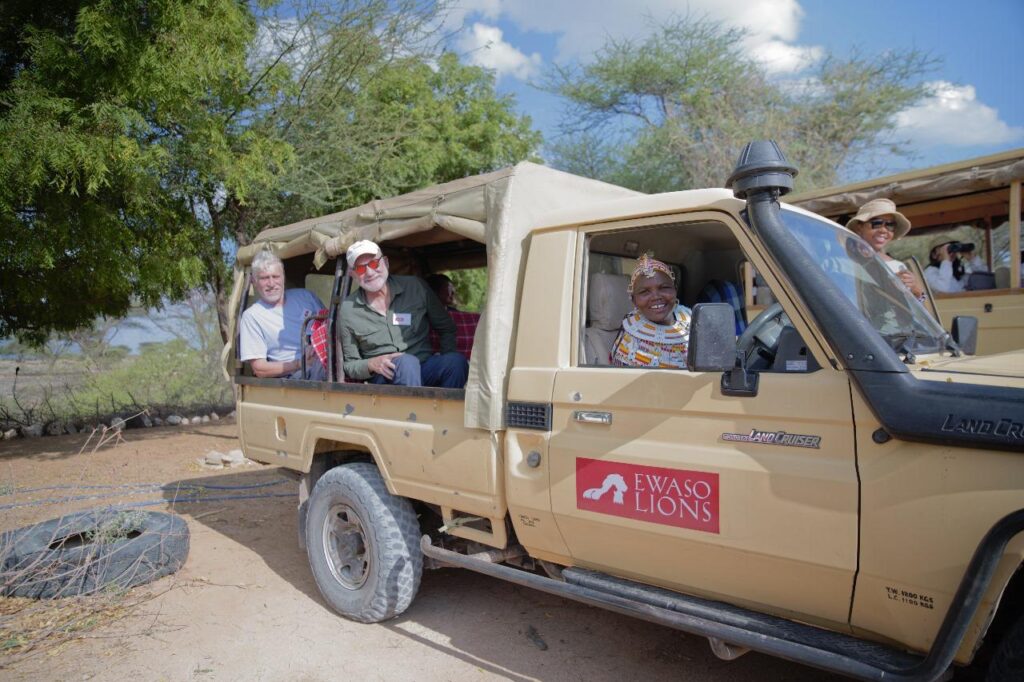
We were fortunate enough to get the chance to take our guests on a safari into Samburu National Reserve.
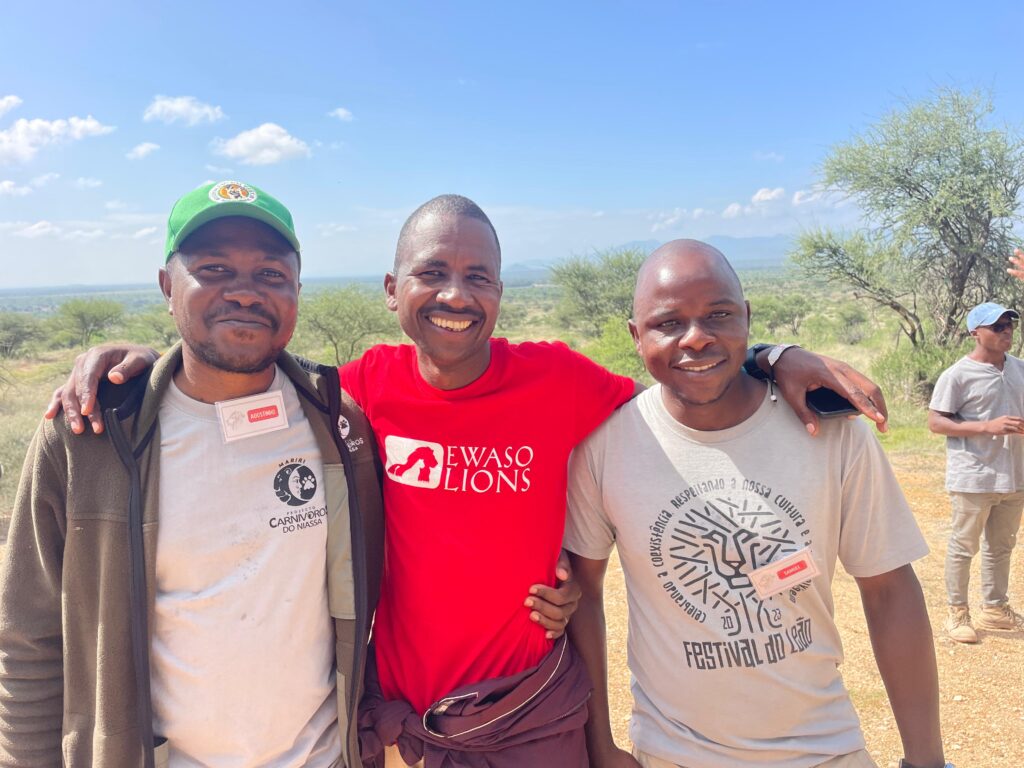
It was a pleasure to spend time with our partners from the Niassa Carnivore Project.
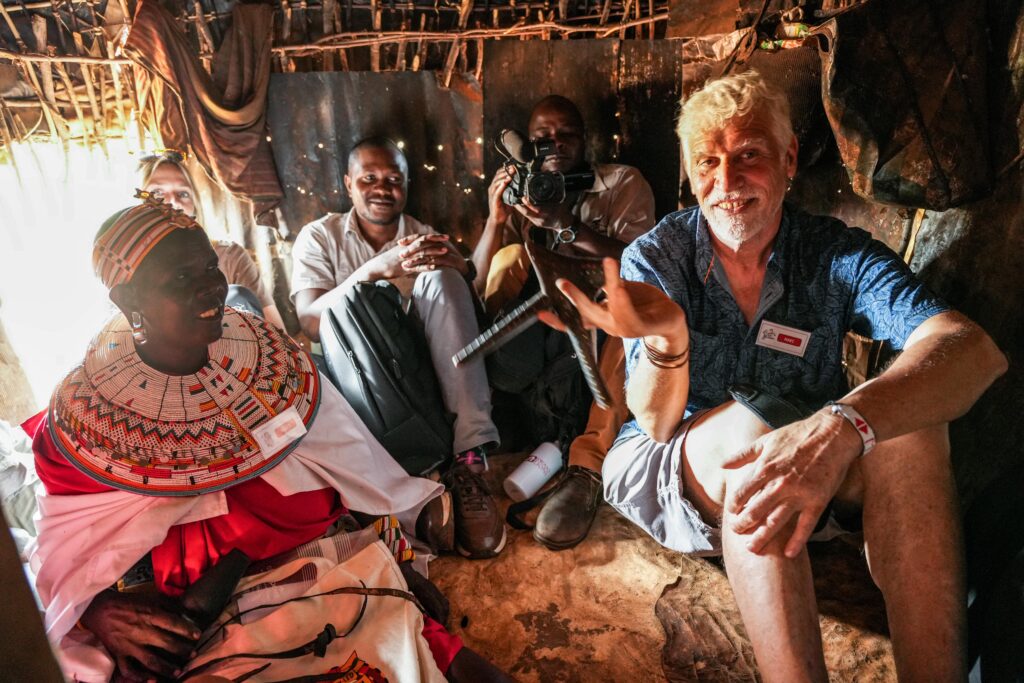
Following a morning with the Mama Simba ladies learning about lion habitat recovery, our guests spent some time in Sasaab village.
A big thank you from Samburu
The knowledge generated here promises to leave a lasting legacy, guiding conservation efforts toward a more inclusive, community-led approach that will help protect our planet’s biodiversity for generations to come. Ewaso Lions wants to thank each and every organisation that came and contributed to this workshop. Your support in this, and the work you do in your various spheres of influence is amazing and inspires us at Ewaso Lions every day.
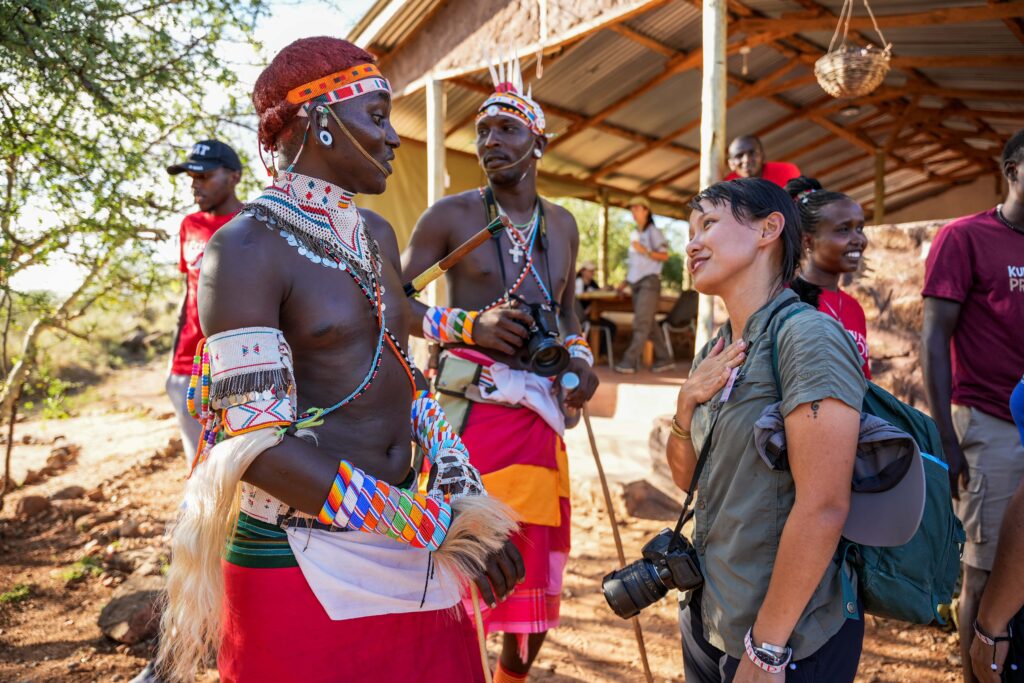
This was an incredible coming together of different communities as much as it was the sharing of ideas between different conservation organisations.
This event wouldn’t have been possible without the support of our sponsors and the hard-working people that helped organise it. So, a big thank you to Whitley Fund for Nature, Wildlife Conservation Network, Zoological Society of London, World Women Work, Andreas Fox Safaris, Norvig Family, International Rhino Foundation, Don and Carol Gagne, Brian Khepri Designs, Irene Amoke, Vic Pilates, Nas Panwar, Terri Nderitu, Alfred Simatwa, Lightbulb Studios, Binnacle Fund and Bunson Travel.
Another thank you to our hosts, Samburu National Reserve and Westgate Conservancy.


